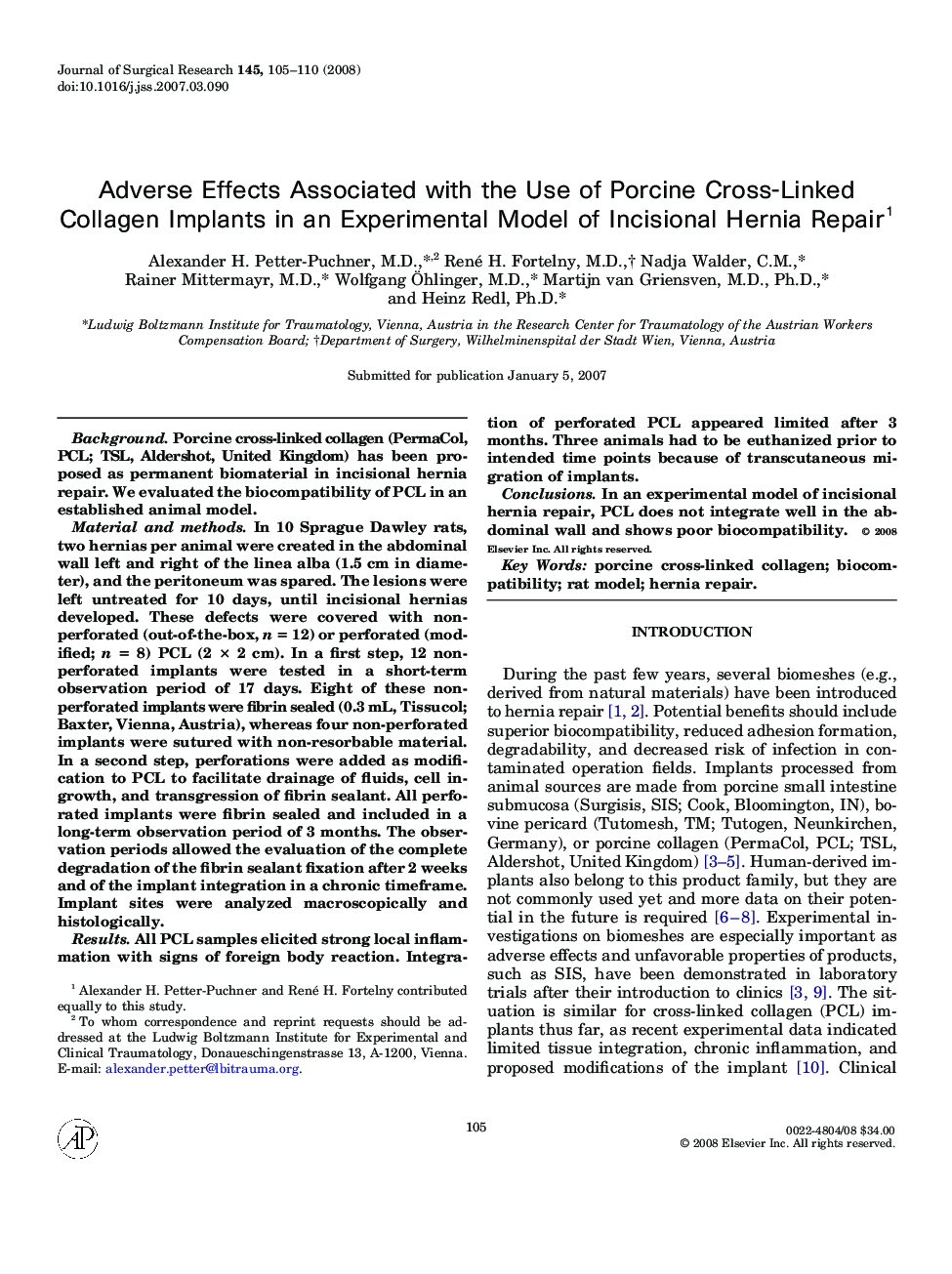| Article ID | Journal | Published Year | Pages | File Type |
|---|---|---|---|---|
| 4304442 | Journal of Surgical Research | 2008 | 6 Pages |
BackgroundPorcine cross-linked collagen (PermaCol, PCL; TSL, Aldershot, United Kingdom) has been proposed as permanent biomaterial in incisional hernia repair. We evaluated the biocompatibility of PCL in an established animal model.Material and methodsIn 10 Sprague Dawley rats, two hernias per animal were created in the abdominal wall left and right of the linea alba (1.5 cm in diameter), and the peritoneum was spared. The lesions were left untreated for 10 days, until incisional hernias developed. These defects were covered with non-perforated (out-of-the-box, n = 12) or perforated (modified; n = 8) PCL (2 × 2 cm). In a first step, 12 non-perforated implants were tested in a short-term observation period of 17 days. Eight of these non-perforated implants were fibrin sealed (0.3 mL, Tissucol; Baxter, Vienna, Austria), whereas four non-perforated implants were sutured with non-resorbable material. In a second step, perforations were added as modification to PCL to facilitate drainage of fluids, cell ingrowth, and transgression of fibrin sealant. All perforated implants were fibrin sealed and included in a long-term observation period of 3 months. The observation periods allowed the evaluation of the complete degradation of the fibrin sealant fixation after 2 weeks and of the implant integration in a chronic timeframe. Implant sites were analyzed macroscopically and histologically.ResultsAll PCL samples elicited strong local inflammation with signs of foreign body reaction. Integration of perforated PCL appeared limited after 3 months. Three animals had to be euthanized prior to intended time points because of transcutaneous migration of implants.ConclusionsIn an experimental model of incisional hernia repair, PCL does not integrate well in the abdominal wall and shows poor biocompatibility.
